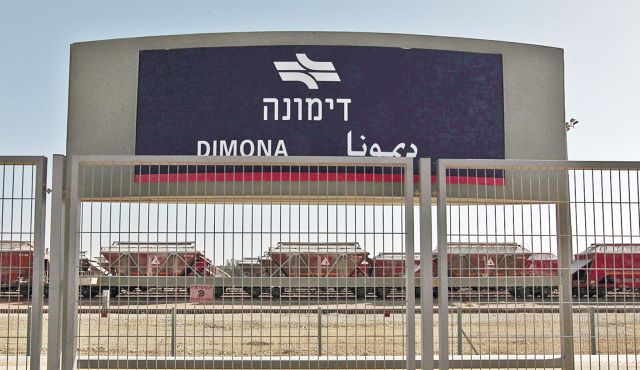By Henrik Vorloeper
There are 1537 reasons why Israel could finally admit the possession of nuclear weapons and put an end to the allegory of the “world’s worst kept secret.” 1537 is the number of flaws that has been found in Israel’s nuclear reactor in Dimona, which is a nuclear research centre and reprocessing plant where, according to common belief, Israel produces Plutonium, which is necessary for nuclear warheads. The problem with Damonia is that the reactor was built by France, which happened to have a pro-Israeli government in the early 1960s. However, the problem is that the reactor has a life-time of not more than 40 years – this number has already passed – and the technical detail that the reactor itself cannot be replaced, thus the flaws not being fixed. Subsequently, the reactor needs to be disabled.
The only question is when?
Israel never claimed to have acquired nuclear weapons, and its statements on intentions to become a nuclear weapon state have always been ambiguous. Israel did not sign the Non-Proliferation Treaty (NPT), which would prohibit the production of nuclear weapons. This is part of the state’s strategy of nuclear ambiguity, it in which nuclear deterrence is created without running the risk of international pressure to disarm the country of its nuclear capabilities. The issue is that Dimona comes close to the end of its lifetime, and Israeli capacities to build a new reactor for the same purpose remains limited, so that Israel’s ability to maintain its potential to produce nuclear warheads comes under threat. The number of nuclear warheads the country keeps in its stockpiles is unknown, but it can be believed that there are enough to maintain nuclear deterrence. However, the strategy of nuclear ambiguity is equally based on Israel’s capacity to produce.
What are Israel’s options?
- Were Israel to join NPT, it would be able to acquire the technology and assistance it needs to replace the Dimona reactor with a new one, but it would at the same time have to disclose its nuclear capabilities to the international audience. Arab league nations stated in 2008 that they would drop out of NPT if Israel would admit having nuclear weapons and not allow the destruction of its arsenal. This step would open the door for an arms race in the Middle East with potential consequences for the global security structure.
- If Israel would continue operation of the Dimona reactor, it would cause security risks for the region in form of a nuclear-fallout. In regards to nuclear reactor security, Israel has voluntarily accepted to adhere to IAEA’s security standards. However, the risk of a political decision to withdraw from these commitments appears to become more likely as closer the reactor reaches its limits of security standards, especially since the issue has deeper implications for Israel’s nuclear deterrence. The bigger problem is that the problem of the aging Dimona reactor is not solved, but only postponed.
- Israel could cease the operability of Dimona for security concerns. With this decision, the state would surrender some of its capabilities to project nuclear deterrence in the Middle East and thus alter the regional security balance to the disadvantage of Israel. It is difficult to estimate how far this could destabilize the region, since Israel would retain its existing nuclear arsenal as nuclear deterrence. However, the country likely would have to change its strategy of ambiguity and more open to its capabilities, which in turn could provoke a harder international position against Israel.
It’s clear that the choice is between bad options and worse options.

